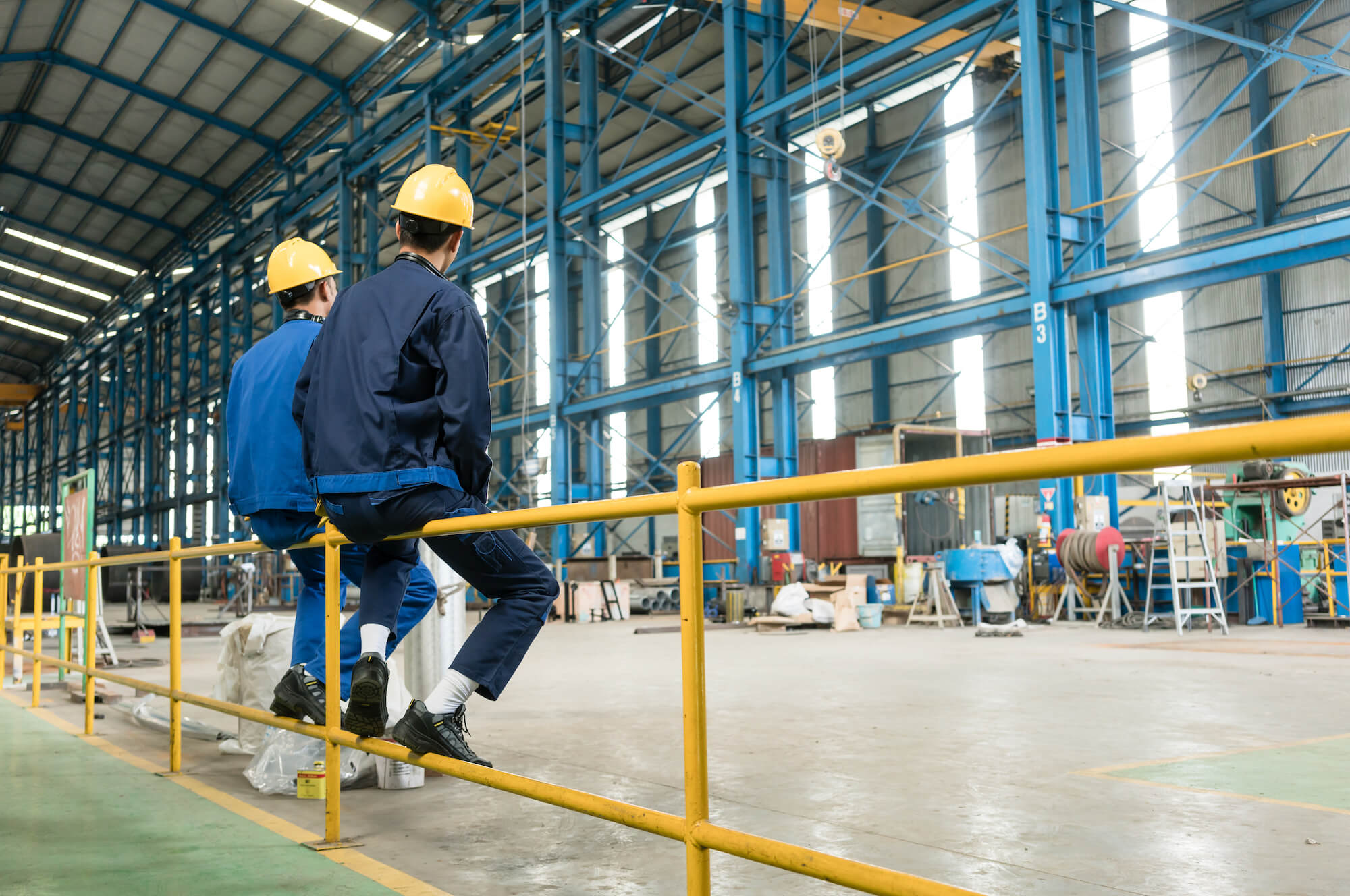In today’s industrial landscape, maintaining clean air in factories is not just a matter of compliance but a cornerstone of operational efficiency, worker safety, and environmental responsibility. Air filters for factories play a pivotal role in ensuring that manufacturing facilities operate smoothly while protecting equipment, employees, and the surrounding environment. This blog explores the importance of air filtration systems in factories, the types of filters available, their applications, and key considerations for selecting the right system for industrial settings.
Related: Solar Power Facts: Harnessing the Sun's Energy for a Bright Future
Why Air Filters Are Essential in Factories
Factories, by their nature, generate a variety of airborne contaminants, including dust, chemical fumes, particulate matter, and volatile organic compounds (VOCs). These pollutants can originate from processes like cutting, grinding, welding, painting, or chemical manufacturing. Without proper air filtration, these contaminants can lead to several issues:
- Worker Health and Safety: Prolonged exposure to airborne pollutants can cause respiratory problems, skin irritation, or long-term health issues like chronic obstructive pulmonary disease (COPD). OSHA and other regulatory bodies mandate strict air quality standards to protect workers, making effective filtration systems a legal necessity.
- Equipment Longevity: Dust and particulate matter can accumulate on machinery, leading to wear and tear, reduced efficiency, and costly downtime. Air filters help keep equipment clean, extending its lifespan and reducing maintenance costs.
- Product Quality: In industries like pharmaceuticals, food processing, or electronics, even tiny contaminants can compromise product integrity. Air filtration ensures that products meet stringent quality standards.
- Environmental Compliance: Factories must adhere to environmental regulations to limit emissions and prevent pollution. Air filters capture harmful particles before they are released into the atmosphere, helping facilities stay compliant with local and international standards.
- Energy Efficiency: Modern air filtration systems are designed to balance air quality with energy consumption, reducing operational costs while maintaining a clean environment.
Types of Air Filters for Factories
Choosing the right air filter depends on the specific needs of the factory, including the type of pollutants, the size of the facility, and regulatory requirements. Below are the most common types of air filters used in industrial settings:
1. HEPA Filters
High-Efficiency Particulate Air (HEPA) filters are among the most effective at capturing fine particles, including dust, pollen, and even some bacteria. They can trap 99.97% of particles as small as 0.3 microns, making them ideal for industries requiring ultra-clean environments, such as pharmaceuticals or microelectronics.
- Applications: Cleanrooms, laboratories, and food processing plants.
- Pros: Exceptional filtration efficiency, reliable for critical applications.
- Cons: Higher cost and pressure drop, requiring more energy to operate.
2. Bag Filters
Bag filters are commonly used in industrial settings for their ability to handle large volumes of air and capture coarse particles like dust and debris. They consist of long, cylindrical fabric bags that trap particles as air passes through.
- Applications: Cement plants, steel mills, and woodworking facilities.
- Pros: High dust-holding capacity, cost-effective for large-scale operations.
- Cons: Less effective for very fine particles, requires regular maintenance.
3. Activated Carbon Filters
These filters use activated carbon to adsorb gases, odors, and VOCs. They are particularly effective in environments where chemical fumes or odors are a concern.
- Applications: Chemical manufacturing, painting booths, and wastewater treatment plants.
- Pros: Excellent for gaseous pollutants, reduces odors.
- Cons: Limited effectiveness against particulate matter, needs periodic replacement.
4. Electrostatic Precipitators
Electrostatic precipitators use an electric charge to attract and capture particles from the air. They are highly efficient for removing fine dust and smoke from industrial exhaust streams.
- Applications: Power plants, metal processing, and incinerators.
- Pros: Effective for fine particles, low maintenance.
- Cons: High initial cost, less effective for non-conductive particles.
5. Cartridge Filters
Cartridge filters are compact and versatile, using pleated filter media to capture dust and other particles. They are often used in dust collection systems and are easy to replace.
- Applications: Welding, grinding, and powder coating operations.
- Pros: Easy to install and replace, good for medium-sized particles.
- Cons: Limited capacity for high dust loads, may require frequent replacement.
6. Mist Collectors
Mist collectors are specialized filters designed to capture oil mist, coolant mist, or other liquid-based aerosols generated during machining or metalworking processes.
- Applications: CNC machining, metal grinding, and lubricant-heavy processes.
- Pros: Tailored for mist and aerosol capture, protects equipment and workers.
- Cons: Specific to liquid-based pollutants, not suitable for dry dust.
Key Considerations for Choosing Air Filters
Selecting the right air filtration system for a factory requires careful evaluation of several factors:
1. Type of Pollutants
The first step is identifying the types of contaminants generated in the facility. For example, a factory producing fine powders will need HEPA or cartridge filters, while a chemical plant may prioritize activated carbon filters for VOCs.
2. Airflow Requirements
Factories often require high airflow to ventilate large spaces or remove pollutants efficiently. The filtration system must balance airflow with filtration efficiency to avoid excessive energy consumption or pressure drops.
3. Regulatory Compliance
Different industries and regions have specific air quality standards. For instance, the U.S. Environmental Protection Agency (EPA) and the European Union have strict guidelines for emissions and workplace air quality. Ensure the chosen filters meet these standards.
4. Maintenance and Operating Costs
While high-efficiency filters like HEPA are effective, they can be expensive to install and maintain. Consider the total cost of ownership, including filter replacement, energy consumption, and downtime for maintenance.
5. Facility Size and Layout
The size of the factory and the layout of its ventilation system will influence the type and number of filters needed. Larger facilities may require centralized filtration systems, while smaller workshops might use localized dust collectors.
6. Environmental Conditions
Temperature, humidity, and the presence of corrosive gases can affect filter performance. For example, high-humidity environments may require filters resistant to moisture buildup.
Benefits of Advanced Air Filtration Systems
Investing in high-quality air filtration systems offers long-term benefits for factories:
- Improved Worker Productivity: Clean air reduces fatigue and health-related absences, boosting productivity.
- Reduced Downtime: Protecting equipment from dust and debris minimizes breakdowns and maintenance.
- Sustainability: Efficient filtration systems reduce energy consumption and emissions, aligning with corporate sustainability goals.
- Brand Reputation: Companies that prioritize worker safety and environmental responsibility enhance their reputation among customers and regulators.
Emerging Trends in Industrial Air Filtration
The air filtration industry is evolving rapidly, driven by technological advancements and increasing environmental awareness. Some notable trends include:
- Smart Filtration Systems: IoT-enabled filters monitor air quality in real-time, alerting operators to maintenance needs or performance issues. These systems optimize energy use and reduce downtime.
- Sustainable Materials: Manufacturers are developing eco-friendly filter media made from recyclable or biodegradable materials, reducing environmental impact.
- Nanofiber Technology: Nanofiber filters offer superior filtration efficiency for ultrafine particles while maintaining low pressure drops, making them ideal for high-tech industries.
- Hybrid Systems: Combining multiple filtration technologies (e.g., HEPA with activated carbon) in a single unit provides comprehensive pollutant removal for complex industrial environments.
Case Study: Air Filtration in Action
Consider a mid-sized automotive parts manufacturing plant dealing with welding fumes, oil mist, and metal dust. Initially, the facility struggled with poor air quality, leading to worker complaints and frequent equipment maintenance. After conducting an air quality audit, the plant installed a combination of mist collectors and cartridge filters tailored to their processes. Within months, air quality improved significantly, worker absenteeism dropped by 15%, and equipment maintenance costs decreased by 20%. This case highlights the tangible benefits of investing in the right air filtration system.
Related: Ultimate Guide to Swimming Pool Pumps, Filters, and Leak Detection in Brisbane
Best Practices for Maintaining Air Filters
To maximize the performance and lifespan of air filters, factories should follow these best practices:
- Regular Inspections: Check filters for clogs, damage, or wear at least monthly.
- Scheduled Replacements: Replace filters according to manufacturer recommendations or when pressure drop exceeds acceptable levels.
- Proper Installation: Ensure filters are correctly installed to prevent air leaks or bypass.
- Monitor Air Quality: Use air quality sensors to track pollutant levels and adjust filtration as needed.
- Train Staff: Educate workers on the importance of air filtration and how to spot issues like clogged filters.
Final Thoughts
Air filters might not be the flashiest part of a factory, but they’re the unsung heroes keeping your operation humming. They protect your workers, your gear, and your reputation while keeping regulators off your back. By picking the right filters, staying on top of maintenance, and keeping an eye on new tech, you can make your factory a cleaner, safer, and more efficient place to work. Whether you’re running a small shop or a sprawling plant, clean air is one investment that always pays off.


.png)



.jpg)

.jpg)
.png)





